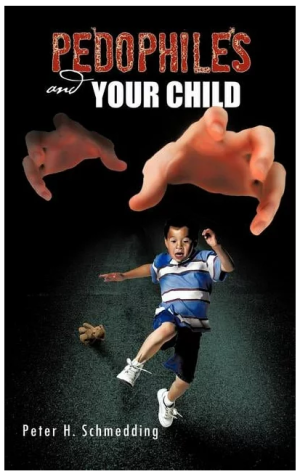One of our staff members is contributing considerably to a News Archiving service at Mu. Any well educated (Masters, PhD or above) users who wish to make comments on news sites, please contact Jim Burton directly rather than using this list, and we can work on maximising view count.
Debate Guide: All child molesters are pedophiles: Difference between revisions
The Admins (talk | contribs) No edit summary |
The Admins (talk | contribs) |
||
| (One intermediate revision by the same user not shown) | |||
| Line 4: | Line 4: | ||
<blockquote><font color="green">'''''Sexual abusers target children who they are <u>hardwired</u> to prey upon.<br><hr>Child sex abuse and pedophilia are <u>partners in crime</u>. Leaving a trail of destruction in its wake, the abuse results from this maladaptive perversion, and creates [[Research: Offender characteristics#Abused-abuser relationship|future pedophiles out of the victims]].'''''</font></blockquote> | <blockquote><font color="green">'''''Sexual abusers target children who they are <u>hardwired</u> to prey upon.<br><hr>Child sex abuse and pedophilia are <u>partners in crime</u>. Leaving a trail of destruction in its wake, the abuse results from this maladaptive perversion, and creates [[Research: Offender characteristics#Abused-abuser relationship|future pedophiles out of the victims]].'''''</font></blockquote> | ||
While estimates vary, research tends to suggest only '''10-20% of CSOs meet the regular criteria for pedophilia'''. [[Research: Pedophiles in the criminal population|Our research anthology on pedophiles in the criminal population]] gives an excellent summary of the findings. ''Many'' of these men, particularly among the higher estimates of 25-50% likely to be | While estimates vary, research tends to suggest only '''10-20% of CSOs meet the regular criteria for pedophilia'''. [[Research: Pedophiles in the criminal population|Our research anthology on pedophiles in the criminal population]] gives an excellent summary of the findings. ''Many'' of these men, particularly among the higher estimates of 25-50% are likely to be non-preferentially attracted to children, or [[hebephilia|hebephiles]] (attracted to pubescents, not children). The vast majority of offenders are non-pedophiles who have been driven to offend by their personal situations. Such [[Wikipedia:Situational sexual behavior|"situational"]] offending is particularly common in crimes of incest involving younger children. Possible causes include general proximity or convenience, the removal/ageing/disablement of adult partners and general lack of confidence approaching socially appropriate adults. | ||
==Statistical manipulation== | ==Statistical manipulation== | ||
| Line 13: | Line 13: | ||
*Project '''pedophilia among child sex offenders at 5%''' from [[Rudiger Lautmann|Lautmann]]'s study in our [[Research: Pedophiles in the criminal population|reading list]]. | *Project '''pedophilia among child sex offenders at 5%''' from [[Rudiger Lautmann|Lautmann]]'s study in our [[Research: Pedophiles in the criminal population|reading list]]. | ||
Thus, one could argue that '''men in the general population have a | Thus, one could argue that '''men in the general population have a 2-6x higher risk of offending against a child''', when compared to true pedophiles. | ||
==It makes no statistical sense to target MAPs== | ==It makes no statistical sense to target MAPs== | ||
Latest revision as of 12:06, 29 December 2024
- This claim goes hand in hand with the equally false charge that all pedophiles are molesters.

Sexual abusers target children who they are hardwired to prey upon.
Child sex abuse and pedophilia are partners in crime. Leaving a trail of destruction in its wake, the abuse results from this maladaptive perversion, and creates future pedophiles out of the victims.
While estimates vary, research tends to suggest only 10-20% of CSOs meet the regular criteria for pedophilia. Our research anthology on pedophiles in the criminal population gives an excellent summary of the findings. Many of these men, particularly among the higher estimates of 25-50% are likely to be non-preferentially attracted to children, or hebephiles (attracted to pubescents, not children). The vast majority of offenders are non-pedophiles who have been driven to offend by their personal situations. Such "situational" offending is particularly common in crimes of incest involving younger children. Possible causes include general proximity or convenience, the removal/ageing/disablement of adult partners and general lack of confidence approaching socially appropriate adults.
Statistical manipulation
One could even argue child sex offending is lower among pedophiles by way of statistical manipulation:
- Project pedophilia in the general population at 10% from the 30% equal or greater arousal to prepubescent children in the Kent State Study and various others.
- Project pedophilia among child sex offenders at 5% from Lautmann's study in our reading list.
Thus, one could argue that men in the general population have a 2-6x higher risk of offending against a child, when compared to true pedophiles.
It makes no statistical sense to target MAPs
Of course, research would seem to indicate the real numbers are likely to be closer to 2-3% true pedophiles in the male general population and 10-20% pedophiles in the (predominantly male) child sex offender population. This would probably infer over 4x higher risk of offending among true pedophiles, although it should be cautioned this is from a very low baseline, and would confirm the existence of large numbers of non-offending pedophiles in the population. When we expand the definition to all pedo/hebephilic MAPs, we find the "risk" only roughly doubles, meaning that a preferential attraction to younger minors is a very weak predictor of criminal inclination. In many societies where black people are socially disadvantaged, their racial characteristics are a stronger predictor of offending, including a 4x greater risk of sexual assault among black males, when compared to white males.[1]
See also
With respect to the abused-abuser relationship sometimes supported by individuals who use this argument: